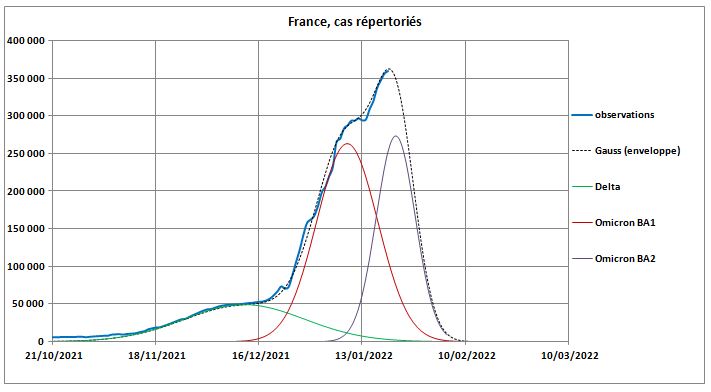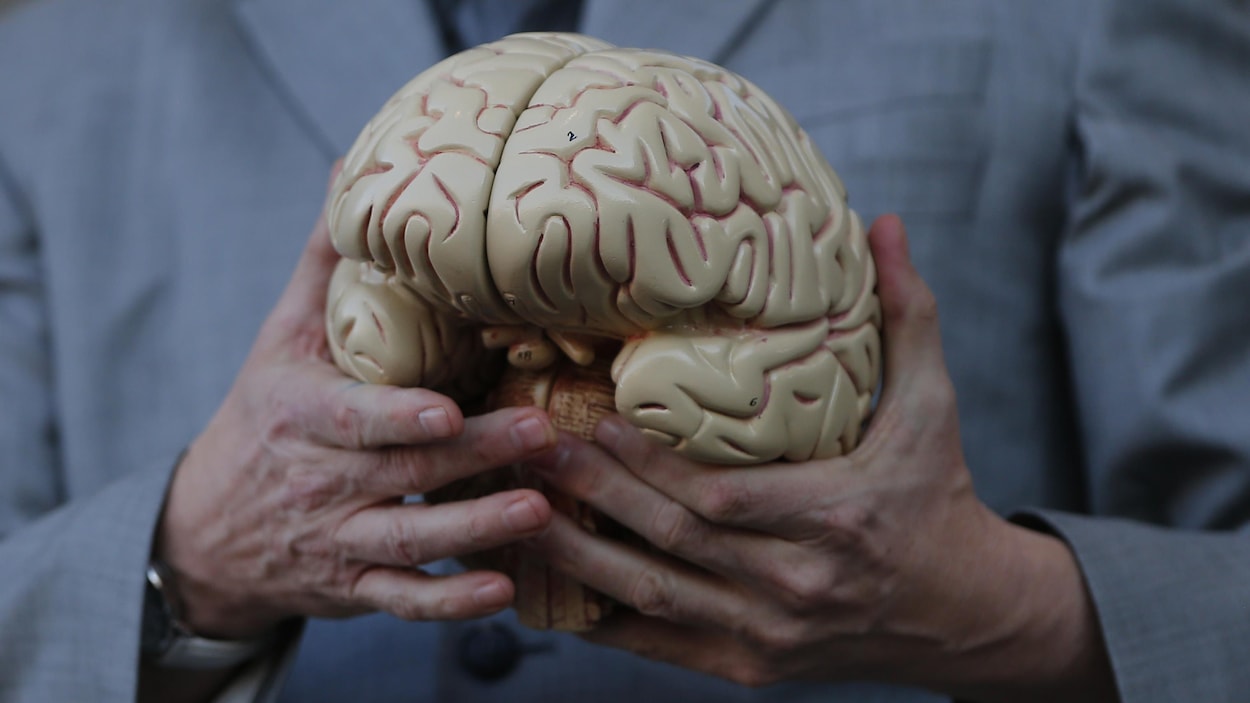The pandemic of Covid-19 has left deep marks on our society, but its effects are particularly striking among teenagers. A recent study highlights a premature brain aging in this age group, a direct consequence of the stress linked to a context of prolonged confinement. This phenomenon raises concerns about the mental and physical health of young people. However, it is possible to act to counter this process. Here are some ways to support and revitalize the brains of our adolescents.
Table des matières
ToggleCOVID has accelerated brain aging in our adolescents
The COVID-19 pandemic has had a profound impact on our society, and one of its most worrying consequences is the acceleration of brain aging among adolescents. Recent studies have highlighted that stress, isolation and lifestyle changes linked to this crisis have had a detrimental impact on the cognitive development of our young people. It is essential to understand these effects to better address them and support the mental well-being of young people.
Scientific discoveries
A study published in the journal Nature found that adolescents’ cerebral cortex thinned more quickly during the pandemic. This phenomenon of premature brain aging affected boys and girls differently, with girls often being more affected. This shrinking of the cortex is concerning, as it is associated with increased risks of mental health problems in the future.
Chronic stress associated with lockdowns has been a major factor in this process. Confined adolescents faced unprecedented challenges, such as anxiety and depressive disorders, which contributed to the accelerated aging of their brain tissue. Prolonged exposure to a stressful environment can cause permanent changes in the structure of their brains, research shows.
How to strengthen adolescent brains
Faced with this alarming situation, it is crucial to put in place strategies to strengthen brain health of our teenagers. Here are some practical tips to help young people overcome these challenges:
Adopt a balanced diet
Diet plays a key role in maintaining brain health. Include fruits and vegetables, rich in antioxidants and nutrients, can help improve cognitive functioning. To learn more about this approach, see this link here.
Encourage physical activity
Regular physical exercise is essential to stimulate the brain. It promotes blood circulation and the production of new brain cells, helping to maintain good cognitive health. Activities such as jogging, yoga or even dancing can have significant beneficial effects.
Stimulate the brain with cognitive activities
Encourage adolescents to engage in activities that stimulate their spirit, such as strategy games, puzzles, or even learning a new musical instrument. These activities can not only improve concentration but also strengthen neural connections.
Practice mindfulness and stress management
The practice of mindfulness and stress management techniques, such as meditation, can help adolescents better manage emotions and reduce stress accumulated during the pandemic. There are many apps and online resources to guide them in this practice.
Strengthen the immune system
Finally, a good immune system is essential to promote good mental and physical health. Simple actions, such as a balanced diet and regular sleep, can have constructive effects. You can discover other valuable tips for strengthening your immune system by checking out this link.
It is imperative to take into account the psychological cost of this pandemic and act quickly to support our young people in this development process. Vigilance and proactive strategies can make a significant difference in their lives and long-term mental health.

The COVID-19 pandemic has had notable effects on adolescent cognitive development. A recent study highlights a premature aging of the brain of young people, linked to stress and prolonged confinement. However, it is possible to mitigate the impacts through adapted strategies and lifestyle changes.
Encourage regular physical activity
The link between thephysical activity and cognitive health is well established. Regular exercise stimulates blood flow to the brain, promoting neuronal growth and improving memory. Encourage teens to participate in sports activities that they enjoy, whether it’s dancing, jogging or team sports. Keep in mind that movement is essential to keeping your mind sharp.
Practice relaxation techniques
Chronic stress is one of the factors associated with brain aging. Introduce relaxation techniques in the daily lives of adolescents can help reduce this stress. Meditation, deep breathing, or even yoga are great ways to calm the mind and promote a healthy mental environment.
Promote a balanced diet
A healthy eating is crucial for brain health. Encourage the consumption of foods rich in omega-3 fatty acids, such as fish, as well as fresh fruits and vegetables. These nutrients are essential to protect the brain and support its optimal functioning. Avoid processed and high-sugar foods which can have detrimental effects on cognition.
Encourage social interactions
Social connection is fundamental for mental well-being and can help combat the impacts of stress. To favor social interactions and group activities can help teens feel connected and supported. Organize family outings or encourage meetings with friends to strengthen these social bonds.
Ensuring good sleep
Sleep plays a crucial role in brain recovery and general well-being. A teenager needs 8 to 10 hours of sleep per night to function well. Create healthy sleep habits, such as a regular schedule and a quiet environment, to allow for optimal rest. Avoid screens before bed, as they can disrupt sleep quality.
Stimulate the brain with cognitive activities
It is essential to stimulate the brain through mental activities. Encourage adolescents to participate in puzzle games, puzzles, or even learning a new skill or language. These activities help keep the brain active and promote the development of neurons.
Troubles cognitifs : le prédiabète et le diabète seraient associés à un vieillissement cérébral accéléré (mais bonne nouvelle, il y a un moyen pour le contrer)
— Femme actuelle (@femmeactuelle) August 29, 2024
➡️ https://t.co/TlCXedgPTP pic.twitter.com/H2MuEaaHgf
Impact of COVID on the adolescent brain
The COVID-19 pandemic has had unexpected and profound consequences on adolescent mental and cognitive health. Recent studies show that the stress caused by confinements has caused a premature aging of the brain in young people. Indeed, observed structural changes, such as a reduction in the size of the cerebral cortex, highlight the detrimental effects of social isolation and uncertainty on brain development. This situation, while concerning, also provides opportunities for intervention to help reverse these effects.
Understanding brain aging
THE brain aging refers to physiological and structural changes that occur in the brain over time. In young people, this phenomenon can be exacerbated by chronic stress, responsible for a thinning of the cerebral cortex. This process can impair cognitive functions, harm memory and affect behavior. It is therefore crucial to adopt a proactive approach to optimize cognitive development during this critical period.
The role of stress
Stress is a determining factor that can accelerate brain aging. Adolescents have been subjected to unusually stressful living conditions during the pandemic, with school interruptions, family financial worries and anxiety about health. To mitigate these effects, it is important to provide them with safe spaces to express their emotions and encourage them to talk about their concerns. Listening attentively to their concerns can promote stress reduction and improve their general well-being.
Adapt lifestyle habits
Changing lifestyle habits is also an effective way to fight brain aging. A balanced diet, rich in omega-3, antioxidants and essential nutrients, promotes brain health. Adolescents should be encouraged to eat fruits, vegetables, oily fish, and nuts to support cognitive function.
Practicing physical exercise
L’physical exercise plays a crucial role in stimulating neuronal connections. Encouraging teenagers to engage in regular physical activity, such as cycling, dancing or team sports, can not only improve their mood but also strengthen their memory and concentration. Exercise releases beneficial neurotransmitters that fight stress and depression, creating a virtuous cycle for mental and brain health.
Encourage continuous learning
It is essential to stimulate thecontinuous learning among adolescents. Participating in educational activities, whether formal or informal, strengthens neural connections and helps keep the mind sharp. Art projects, science workshops or book clubs can provide enriching experiences that promote cognitive and emotional development.
Practice relaxation techniques
Incorporate relaxation techniques in the routine of adolescents can also be beneficial. Practices such as meditation, yoga or breathing exercises help calm the mind and reduce anxiety. These methods promote better management of emotions, which can contribute to optimal brain health.
Create a positive environment
Finally, it is essential to create a positive environment around teenagers. Supporting their interests, passions and social relationships can play a key role in their development. By promoting healthy interactions and building social connections, we can help our adolescents overcome the challenges associated with accelerated brain aging.







